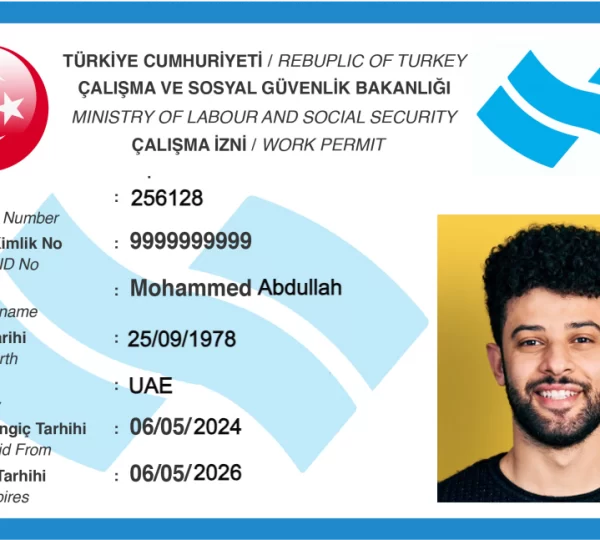
Turkey Liaison Office
Turkey Liaison Office: How to set up, What are the benefits?
A liaison office in Turkey is a type of representative office that allows foreign companies to establish a presence in the country without engaging in direct commercial activities.
This office acts as a communication and coordination hub between the parent company and Turkey, focusing on activities such as market research, networking, promotional efforts, and business liaison services.
However, it is not permitted to generate revenue or engage in sales within Turkey.
This article will provide you a step-by-step guidance on how to establish a Liaison Office in Turkey, covering legal requirements,benefits, incentives and more.
Table of Contents
What is Liaison Office?
A liaison office is a type of legal entity that allows a company, usually a foreign entity, to establish a presence in a specific country – in Turkey-without engaging in direct commercial activities or generating revenue there. The primary function of a liaison office is to act as a communication and coordination hub between the parent company and the local market.
Key Functions of a Liaison Office in Turkey
- Communication Hub: It serves as a point of contact between the parent company and local clients, partners, or regulatory authorities.
- Market Research: The office can conduct market analysis, gather local business intelligence, and assess market conditions.
- Networking: It helps in building and maintaining relationships with local businesses, government bodies, and other stakeholders.
- Promotional Activities: The office may promote the parent company’s products or services, although it cannot engage in sales.
- Business Liaison: It facilitates coordination and cooperation between the parent company and local entities, ensuring smooth operations.

Key Features of a Liaison Office in Turkey
Non-Commercial Activities:
The office can perform tasks such as market research, networking, and managing communications, but it cannot participate in any income-generating activities.
Capital Requirement:
The Liaison offices do not have capital requirements like LLC & JSC companies.
Taxation:
Since the liaison office does not engage in commercial activities, it is generally not subject to Corporate Income Tax in Turkey. However, it must still comply with other regulatory requirements, such as filing annual reports.When the liaison office purchases goods or services in Turkey, it must pay VAT. It is not possible to get refund it.
Staffing:
The office can hire local or foreign staff, but their salaries are typically paid as FX from the parent company outside of Turkey. These salaries are exempt from income and stamp duty within the scope of state incentives. However, there is no social security exemption, they must pay SGK premiums.
Approval and Registration:
Establishing a liaison office requires approval from the Turkish Ministry of Industry and Technology. The process includes submitting necessary documents, such as the parent company’s financial statements, a board resolution to establish the office, and a lease agreement for the office space.
Duration:
The initial approval is usually granted for three years, with the possibility of extension upon application.
Restrictions For Turkey Liaison Office
- No Commercial Activities: The liaison office cannot engage in any revenue-generating activities, such as selling products or services.
- Non-Taxable: Since it does not generate revenue, it is generally not subject to corporate taxes in the host country, though it must comply with local regulatory requirements.
- No Local Sales: The liaison office is strictly prohibited from engaging in any business activities that result in revenue within Turkey. This includes selling products or services.
- No Money Transfer Outside of Turkey: Liaison offices cannot transfer money abroad except for closing and liquidation. In other words, money coming from abroad is used for salaries and mandatory expenses.
- No Insvet: It is not possible for Liaison Offices to have real estate in Turkey.
Benefits of a Liaison Office in Turkey
Market Presence Without Full Commitment:
A liaison office allows a foreign company to establish a presence in Turkey without the need for a full-fledged subsidiary or branch, providing a low-risk entry into the market.
Cost-Effective Operations:
Since the office is not involved in revenue-generating activities, it typically incurs lower operational costs compared to a full commercial entity.
Brand and Relationship Building:
It enables the parent company to build and maintain relationships with local stakeholders, enhancing brand visibility and reputation in Turkey.
Market Research and Insight:
The liaison office can gather valuable market intelligence, helping the parent company understand local market dynamics, customer preferences, and potential business opportunities.
Simplified Regulatory Requirements:
Liaison offices face fewer regulatory requirements and tax obligations since they are not engaged in commercial activities, simplifying compliance.
Facilitation of Communication:
The office acts as a communication hub, ensuring efficient coordination and collaboration between the parent company and its Turkish contacts.
Flexibility for Future Expansion:
A liaison office provides a foundation for potential future expansion into the Turkish market, allowing the parent company to evaluate opportunities before making larger investments.
Finance and Operational Payments
Establishing a liaison office in Turkey is an effective way for foreign companies to engage in non-commercial activities such as market research, brand representation, and business development.
Although liaison offices are restricted from conducting commercial transactions, they still need to manage operational expenses like employee salaries, rent, and office utilities. For this, opening a bank account in Turkey is essential.
These expenses include:
- Employee salaries (both local and expatriate staff).
- Office rent and utilities.
- Payment for professional services, such as legal and accounting services.
- Other administrative costs related to running the liaison office.
A Turkish bank account is also necessary for meeting regulatory requirements, such as filing annual reports with the Turkish Ministry of Industry and Technology, which oversees liaison offices.
Key Requirements for Opening a Bank Account for a Liaison Office
To open a bank account in Turkey for a liaison office, the following documents and steps are generally required:
1. Liaison Office Registration Documents
The foreign parent company must provide the necessary documentation proving that the liaison office has been officially registered with the Ministry of Industry and Technology in Turkey. These documents include:
- Ministry approval letter authorizing the establishment of the liaison office.
- A copy of the Liaison Office License.
2. Foreign Parent Company Documents
The parent company’s documents are essential for bank verification, including:
- Articles of Association.
- Certificate of Incorporation.
- Board resolution authorizing the establishment of the liaison office in Turkey.
These documents must typically be notarized and translated into Turkish.
3. Taxpayer Identification Number (TIN)
Although liaison offices are generally exempt from corporate taxation, they must still obtain a Taxpayer Identification Number (Vergi Kimlik Numarası) from the Turkish Tax Office. This number is required for various legal and administrative procedures, including opening a bank account.
4. Power of Attorney
A power of attorney (PoA) may be required if the foreign company’s representatives are not physically present in Turkey. The PoA must authorize a local representative to act on behalf of the company in banking matters.
5. Proof of Office Address
Banks typically require documentation that verifies the liaison office’s physical location in Turkey. This could include a rental agreement or a utility bill in the office’s name.
6. Authorized Signatories’ Identification
The bank will request identification for the authorized signatories of the liaison office’s bank account. This includes:
- Passports of the foreign parent company’s authorized representatives.
- Identification of local signatories, if any.
7. Bank Forms and Applications
Each bank in Turkey will have its own set of forms and applications that need to be completed. These forms generally require details about the liaison office’s operations, the parent company, and authorized signatories.
Get in Touch With Us to Register a Liaison Office in Turkey
Liaison offices are a common strategy for global companies & foreign enterpreneurs that want to explore the Turkish market without committing to a full-scale commercial operation.
A&M Consulting Co. is a Turkish Accounting and Tax Consultancy company specialized in providing end-to-end Liaison Office formation Services for especially global companies and foreign entrepreneurs which wants to walk into to Turkey Market
We continue to offer cost-effective solutions to global investors and individual entrepreneurs who is willing to enter the Turkish and European markets smoothly and quickly, to facilitate full compliance with local legislation and to provide access to tax and social security incentives.
DISCOVER OUR SERVICES:
- Company Registration in Turkey
- Tax Services
- Accounting & Bookeeping Services
- HR & Payroll Services
- Business Consultancy for Turkey
- Social Security Registration
- Turkish Citizenship
- Turkey Work Visa
- Turkiye Tech Visa
- Establishment of Association in Turkey
You can reach out to our experienced consultans via email or by filling out the Contact Form on our website’s contact page.
FAQs About Liaison Office in Turkey
A liaison office is a non-commercial office set up by a foreign company to conduct market research, promote products, and handle representative functions in Turkey without engaging in profit-generating activities.
No, a liaison office is prohibited from conducting direct commercial activities such as sales or generating income.
Permitted activities include market research, monitoring business opportunities, and liaising with clients or suppliers on behalf of the parent company.
A liaison office can initially operate for a period of 3 years, after which the office must apply for an extension from the Ministry of Industry and Technology.
The main requirements include submitting the parent company’s documents, business plans, and other application forms to the Ministry of Industry and Technology for approval.
Since a liaison office cannot conduct commercial activities, it is generally exempt from corporate taxes. However, it is required to file periodic reports with the authorities.
Yes, a liaison office can hire both local and foreign employees. However, all employees must be working solely on non-commercial activities.
Employee’ salaries are typically are exempt from income and stamp duty as long as pay off as FX
Liaison Offices are subject to social security contributions for their staffs, the liaison office is responsible for social security declerations monthly and filing employee payrolls and payment receipts.
No, Liaison office’s Employees’ salaries must be paid in foreign currency by the parent company, otherwise income and stamp duty may comes about & be charged. Liaison offices can make salary payments by opening a bank account in Turkey.
To close a liaison office, the foreign company must notify the Ministry of Industry and Technology and submit the necessary documents for official dissolution.
Documents required include the parent company’s articles of association, a board resolution approving the establishment of the liaison office, and proof of the company’s activities abroad.
Costs typically include registration fees, legal fees, and other administrative expenses. The actual cost may vary depending on the specific requirements.
No, there is no minimum capital requirement to establish a liaison office, as it is not a commercial entity.
Yes, but the company would need to follow the legal procedures to close the liaison office and re-register as a branch or subsidiary, which allows for commercial activities.
Yes, it typically needs a local bank account to manage its expenses such as rent and employee salaries, though it cannot receive income.
Liaison offices are required to submit annual reports to the Ministry of Industry and Technology detailing their non-commercial activities.
Recent Posts




